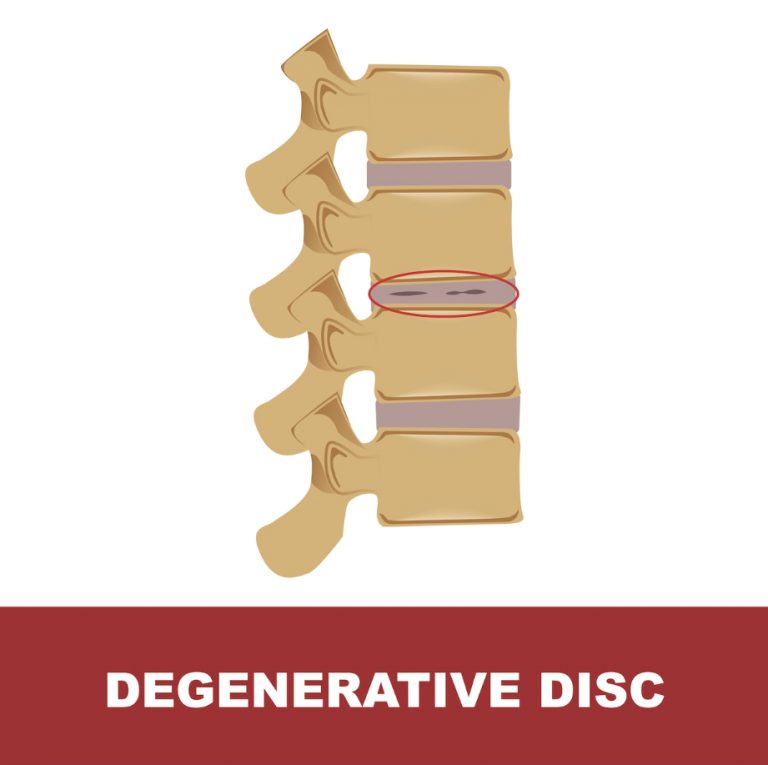What is Degenerative Disc Disease
Degenerative disc disease (DDD) treatment typically begins conservatively with spine surgery as a last resort option. That’s because the symptoms associated with spinal disc degeneration can improve when treated with the right combination of lifestyle changes and medication.
A natural consequence of aging, DDD causes the spinal discs to become smaller, drier, less flexible, and more susceptible to cracks and other damage over time. These discs cushion the vertebrae in the spinal column, allowing them to bend and twist through a wide range of motions. DDD leads to the discs being less able to perform this function, leading to bone-on-bone contact as well as conditions like bulging and herniated discs. Pain and other symptoms usually result from displaced disc material putting pressure on the spinal cord or exiting nerve roots.
Starting Degenerative Disc Disease Treatment
Everyone is unique, so what works for one person doesn’t always work for another. Finding the right combination can take some time and often requires a process of trial and error. As you try different techniques, rely on the advice and guidance of your doctor. He or she is often your best source of personalized information and should have the best advice for your particular situation.
As you begin, here are some general guidelines for DDD treatment:
- Protect Your Spine. Repetitive stress can worsen both the rate of disc degeneration and your overall discomfort. Think about the movements you make every day and how you can change your routine to lessen its impact on your neck and back. Most importantly, if a certain activity causes you pain you should avoid it.
- Stay Active. Even though it might seem counterintuitive, exercise can be beneficial for your spinal discomfort. For instance, a simple low-impact exercise like walking which costs nothing and can be done just about anywhere, can improve cardiovascular health, strengthen supporting muscles and help with weight loss.
- Keep An Open Mind. You can try one or more complementary or alternative treatment approaches. Such as acupuncture, nutritional supplements, yoga, massage, chiropractic care, or meditation. However, be sure to keep your doctor informed if you do pursue alternative methods. This is to ensure they are compatible with your existing treatment plan
When To Consider Surgery
For many patients a few weeks or months of conservative DDD treatment is all that is needed to relieve symptoms. However, in some cases, surgery may be recommended to treat severe pain that does not improve with conservative treatment. It’s common to have concerns about traditional open back surgery. Traditional surgery typically involves a large incision, overnight hospitalization, and a long recovery time. Reach out to BEST Health System to learn more about our minimally invasive outpatient spine surgery. Our procedures use a less than 1-inch incision and offer our patients a shorter recovery time. Our procedure is a step above traditional open neck or back surgery.
To find out if you’re a potential candidate for one of our procedures, contact us today!
